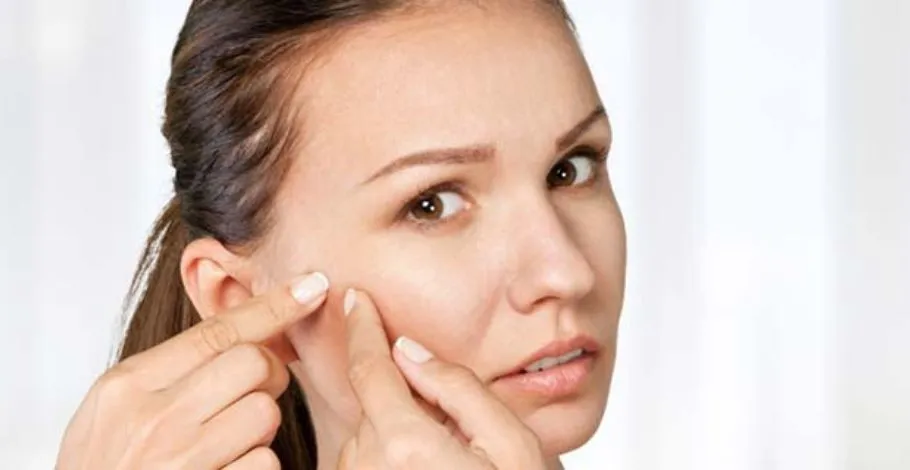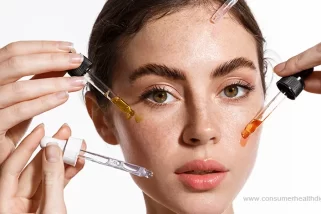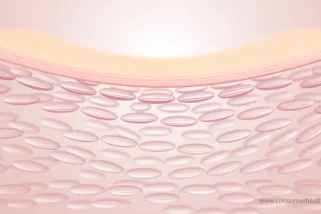In This Article
The success of our skincare regimen and achieving desired effects with makeup products depend on the quality of the product you purchase. For example, some products can clog your pores and make your skin look unappealing. In this article, we're going to discuss clogged pores and how to determine whether your pores are clogged too.

Spotting Pore-Clogging Products
The best way to find out whether products you use have the potential to clog your pores is by reading the list of ingredients. In fact, you should never purchase any product (skincare or makeup) without checking what's in it. This can also save you from irritations in case you're allergic to some component or if you have sensitive skin.
Even if product is labeled as noncomedogenic (doesn't clog pores), it's still recommended to check the list of ingredients. There is no government agency that oversees this aspect which is why some skincare and cosmetic companies can claim their products won't clog pores when they actually do.
Pore-clogging ingredients are found in skincare products, cosmetics, shampoos, facial moisturizers and many others. While some people won't develop reaction to these products, individuals with acne-prone and sensitive skin should avoid them. Below, you can see examples of ingredients in personal care products that have the potential to clog pores.
Lanolin
Your skin produces sebum, and sheep's skin produces lanolin. It's a naturally occurring ingredient that makes sheep's wool soft. Cosmetic and skincare industry uses this ingredient as an emollient or an ingredient that softens, moisturizes, and smoothes skin.
On the ingredients list of cosmetic and skincare product, lanolin usually is listed as:
- Acetylated lanolin
- Acetylated lanolin alcohol
- Athoxylated lanolin
- PEG 16 lanolin
- Solulan 16.
The Face Reality Skin Care Clinic in San Leandro, California made a list of ingredients that are more likely to clog pores. The skincare products list rated ingredients from 1 (being least likely) to 5 (most likely) and lanolin together with its synthetic derivatives ranked 4.
Oils
When it comes to pore clogging, natural oils can be one of worst offenders. Oils are usually included in moisturizing products. Even oils that are considered as beneficial e.g. jojoba oil or coconut oil have the ability to clog your pores. The Face Reality rated oils as 4 for their high probability to clog your pores. Of course, “chemistry” of the skin plays an important role as well. If you have oily skin and use oil-based products, the excessive amount of oil in your skin leads to clogged pores.
Salt
This ingredient is present in detergent-based to increase the viscosity of the product. Salt itself doesn't pose as a big threat to clogging your pores. Instead, it has a negative effect when it's mixed with detergents in facial cleansers, soaps etc. Detergents dry out your skin which tries to compensate for lack of moisture by producing more sebum. Then, salt hardens the sebum thus causing it to stick in pores. Face Reality rated salt with 5 for ability to clog pores.
Identifying and Getting Rid of Clogged Pores

Getting Rid of Clogged Pores
Clogged pores can cause infections, acne breakouts and inflammations. But, the best way to prevent these consequences from happening is by identifying whether your pores are clogged or not. You can find out how to do that below:
- Stand close to the mirror and examine your skin thoroughly – clogged pores are usually easy to see because they look larger than usually due to various impurities. If you notice blackheads, it's a definite sign your pores are clogged.
- If you suspect your pores are clogged, steam them for 10 minutes
- Stand in front of the mirror again and wrap a cotton strip around each forefinger and start pressing tips of blackheads and suspected clogged pores gently. Then, start pushing forefingers next to each other to force out the matter that is in the pores. If the white matter comes out, it means pores were clogged with soft impurities, while dark matter expulsion means the pores were clogged by hardened oils.
Preventing Clogged Pores
To prevent clogged pores, acne breakouts, blackheads, and unappealing complexion, here are some tips you will find beneficial:
- Don't wash your face too often. American Academy of Dermatology reveals that excessive washing can only lead to excessive production of sebum. Instead, wash your face twice a day.
- Always check the list of ingredients, even if the product is labeled as noncomedogenic.
- Wash your face with lukewarm water and mild cleanser that is still powerful enough to eliminate all impurities.
- Use cosmetics and other products that are labeled as oil-free (and still make sure ingredients list doesn't contain oils)
- When using makeup foundation, you should go for powders as liquid foundations could only make things worse if your skin is prone to pore-clogging
- Consult your dermatologist.
Conclusion
Clogged pores usually lead to acne breakouts and make your skin look oily or greasy. But, in some cases, the primary culprits for clogged pores are products we use as they contain oils, salt etc. Ideally, you should always read the ingredients list and make sure products you purchase don't contain any ingredient that could clog your pores.
2 Sources
We review published medical research in respected scientific journals to arrive at our conclusions about a product or health topic. This ensures the highest standard of scientific accuracy.
[1] Are Synthetic Data Derivatives the Future of Translational Medicine? https://www.ncbi.nlm.nih.gov/pmc/articles/PMC6234614/ [2] CLEANSERS AND THEIR ROLE IN VARIOUS DERMATOLOGICAL DISORDERS https://www.ncbi.nlm.nih.gov/pmc/articles/PMC3088928/





